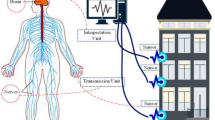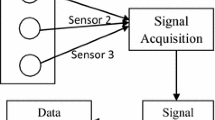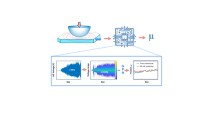Abstract
A technique for the study of acoustic emission during high-cycle-fatigue crack propagation has been developed. Difficulties resulting from complex emission behavior and the low signal-to-noise ratio encountered in this type of test are rectified by three methods: minimization of mechanical noise; separation of noise causes according to position in the loading cycle; and rejection of noise from sources other than the crack by a short-time correlation method. The approaches are discussed and data from a fatigue test are presented demonstrating accoustic-emission behavior for crack-growth rates from 3×10−6 in./cycle to 70×10−6 in./cycle.
Similar content being viewed by others
References
Tatro, C. A., “Experimental Considerations for Acoustic Emission Testing,”Matl. Res. and Stand., MTRSA,11 (3),17 (March1971).
Morton, T.M., Lewis, R. E. andHarrington, R. M., Acoustic Emission Research-1971, LMSC D266144, Lockheed Missiles & Space Company, Inc., Sunnyvale, CA (1972).
Author information
Authors and Affiliations
Additional information
This work was funded by the Lockheed Independent Research Program.
Rights and permissions
About this article
Cite this article
Smith, S., Morton, T.M. Acoustic-emission detection techniques for high-cycle-fatigue testing. Experimental Mechanics 13, 193–198 (1973). https://doi.org/10.1007/BF02322652
Received:
Accepted:
Issue Date:
DOI: https://doi.org/10.1007/BF02322652




